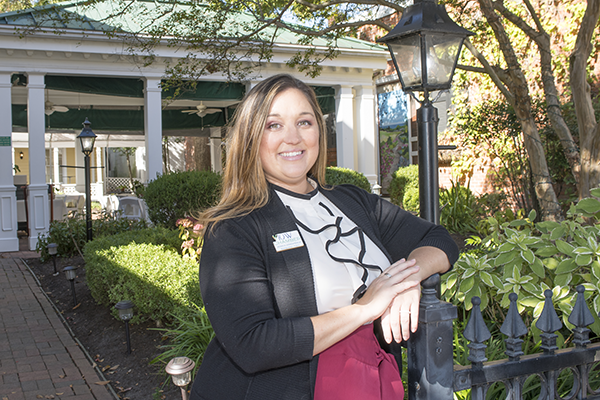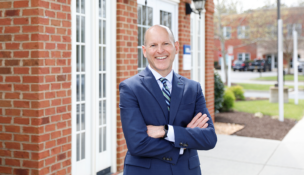The rise of the millennials
As boomers exit, the 2020s will see America’s largest generation dominate the workplace
The rise of the millennials
As boomers exit, the 2020s will see America’s largest generation dominate the workplace
Millennials. You know the type. Oversensitive, phone-obsessed, selfie-snapping, “Friends”-binge-watching, kombucha-guzzling, influencer-obsessed complainers.
If that sort of thing drives you crazy, here’s your trigger warning: Millennials are taking over the workforce. Get used to it.
According to the Pew Research Center, millennials include everyone born between 1981 and 1996, which, at 73 million, surpassed the aging baby boomers this year as our largest living generation.
No matter how you count them, millennials and those following them will dominate the workforce starting in the 2020s.
Boomers are retiring — within a decade they’ll make up less than 10% of the workforce. Generation X, born between 1965 and 1981, number about 66 million — not insignificant, but not as large — and will also be beginning to reach retirement age by the end of the 2020s.
The next decades will belong to the millennials and their younger Gen Z siblings, who are expected to eclipse the millennials in size and are just now entering the career labor pool.
Employers and localities who want to replace their aging workforces will need to embrace that fact.
“This is probably the biggest workforce challenge we face as a commonwealth,” says Stephen Moret, president and CEO of the Virginia Economic Development Partnership, the state’s main economic recruitment arm. “We need to be competitive and appealing to young professionals if we are going to continue to be a top state for business.”
Creating culture
Across Virginia, economic development officials and companies are laser-focused on attracting millennials. If a community isn’t a millennial magnet like Denver or San Francisco, it’s going to need to work harder to appeal to in-demand younger workers.
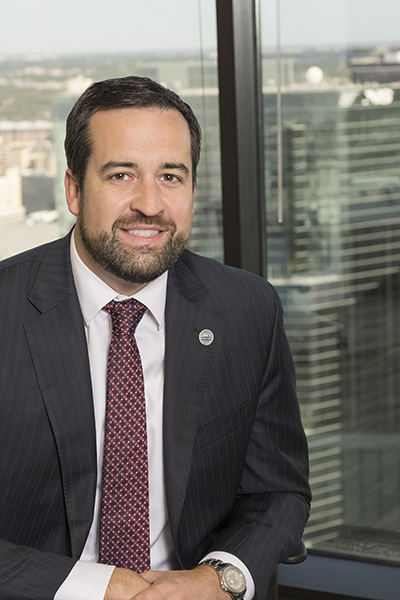
In the case of Norfolk, this means encouraging a millennial-friendly atmosphere with breweries, bike lanes and other amenities, Chalk says.
“People look at bike lanes as a transportation solution, and it is, but it’s also creating the sort of place millennials want to come,” adds Chalk, who is 37.
Indeed, the city of Norfolk and nonprofit tourism booster VisitNorfolk are in the early stages of creating a campaign to market the city as a college town — “Campus Norfolk” or “Campus 757”— because university-dominated cities such as Austin, Texas; Nashville, Tennessee; and Richmond draw millennials, Chalk says. (There are five higher education institutions in Norfolk, including Norfolk State and Old Dominion universities.)
In nearby Isle of Wight County, where the median age of the county’s 37,000 residents is about 45, recruiting millennials is also “a top priority,” says Jessica Jones-Healey, president and CEO of the county Chamber of Commerce.
“Succession is a huge topic here,” says Jones-Healey, who is 33. “If we don’t have a succession plan, businesses will close.”
The county Chamber of Commerce has begun hosting co-working spaces for the many freelance workers in the county and last year launched a business networking group for millennials. The town of Smithfield in Isle of Wight now throws three big festivals a year, Jones-Healey says, including one celebrating bacon and bourbon. “It’s all about creating a culture,” she explains.
In Southside Virginia, Danville officials have arrived at a different conclusion. Rather than attempt to lure millennials to the former textile-manufacturing hub in Southwest Virginia, the city of about 41,000 people is working on training programs for middle school and high school students that will prepare them for jobs sought by regional employers. By leveraging high-tech training offered by the Gene Haas Center for Integrated Machining, a partnership between the Institute for Advanced Learning and Research and Danville Community College, teens can start learning skills such as machining, IT security and precision welding.
“We are very acutely aware that the most important incentive we can offer … is a sustainable source of trained workers,” says Linwood Wright, a former Danville mayor and consultant to the city’s economic-development division.
Danville has lost major sectors of its economy, including textile manufacturing and tobacco processing, in recent decades. “We could sit here and cry in our beer,” Wright says, “or do something about it.”
‘A war for talent’
That litany of millennial stereotypes at the start of this article? Amanda Green has heard them all.
“Everybody has an opinion on millennials and who they are and what they want,” says Green, 29, youth program coordinator for the Hampton Roads Workforce Council. “But they never ask us.”
“We destroyed the economy, apparently,” scoffs Jack Weisbrod, 26, a sales associate at Dominion Payroll in Richmond.
Employers and economic development professionals will have to move past stereotypes and insults to understand what drives millennial workers, workplace experts say.
“The future is going to be a war for talent. Companies are going to be fighting for these people,” says John M. Martin, CEO of Richmond-based Southeastern Institute of Research, a management consultancy, and managing partner at Institute for Tomorrow, a think tank focused on demographic trends.
McLean-based Capital One Financial Corp. is ready for that challenge, says Judy Pahren, senior vice president for human resources at the Fortune 100 credit-card and banking giant. “Our No. 1 principle is to attract really talented people,” Pahren says. “We know our success is dependent on talent.” Recruiting younger workers like millennials, she adds, “is key to that strategy.”
Pahren declines to say how many workers the company recruits each year but observes that, with almost 50,000 employees, Capital One views retaining young technology-savvy workers as vital. And “not just for their skills and abilities,” she adds. “They’re also our future leaders.”
To bring them in, Capital One emphasizes the values these younger workers find important — for example, flexibility and a sense that their work can have real impact.
Rather than using its sizable credit business to attract potential employees, Capital One is positioning itself as a technology company. Recruitment videos present workers as cool, savvy young people of various hues and interests — no neckties, no mention of bankers’ hours or even retirement benefits. “Let’s do something great together,” a narrator says.
Raised amid recession
While baby boomers “came from a lifetime of rising incomes, expecting an improving world,” millennials learned from the 2008 recession to expect that their futures will depend on their own abilities to adapt and change careers, says Robert T. Sumichrast, dean of the Pamplin College of Business at Virginia Tech.
Millennials are laden with debt from the skyrocketing cost of college — in the first quarter of 2019, the average college debt held by millennials was $34,500, according to Experian — and their incomes are still stunted by the recovering economy. (In Virginia, median income for millennials was $41,400 in 2018, compared with $60,000 for Gen Xers and $64,700 for boomers, according to a Business Insider study.)
While homebuying among millennials rose to about a third of all purchasers in 2017 and 2018, a higher proportion of millennials rent, compared with Generation X and baby boomers. Millennial home ownership still remains 5 percentage points below Gen Xers and 8 percentage points lower than baby boomers at the same ages, according to a National Association of Realtors’ 2019 Home Buyer and Seller Generational Trends study and a 2018 report by the Urban Institute.
Raised by doting helicopter parents and monitored by world-spanning social media for much of their lives, millennials are simultaneously confident of their own value, comfortable in diverse groups of people and anxious that they won’t fulfill their promise.
This has led to a shift in what people think is important.
While boomers lived to work, explains SIR’s Martin, “millennials see work as a way to live.” Instead of climbing the corporate ladder, “millennials want a life of purpose,” Martin says.
The search for meaning
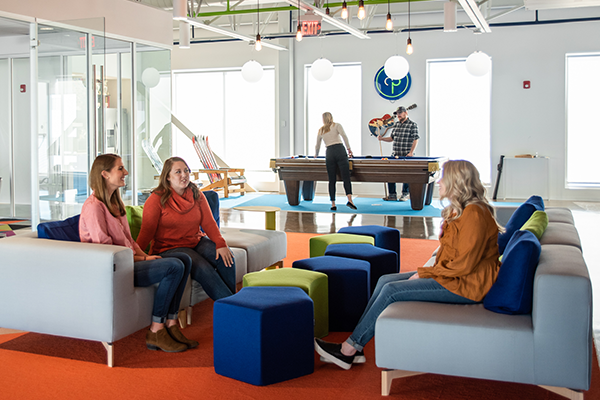
It’s headquartered in Richmond’s trendy Scott’s Addition neighborhood, which in the past half-decade has gentrified from a region of run-down warehouses into one of artisanal coffee shops, microbreweries, co-working spaces and tattoo parlors. (Almost half of millennials have tattoos, compared with 36% of Generation X and 13% of baby boomers, according to a 2015 Harris Poll.)
A clutch of company-owned bikes are parked in Dominion Payroll’s lobby, available to any employee who wants one. Workspaces include desks, glass-walled conference rooms and scattered chairs, without a single cubicle or solid office wall in sight. Employees move about, laptops in hand, working wherever they like.
It’s so … millennial.
Caroline Kobasa, 26, recalls arriving for her interview: “I knew the minute I walked in that I wanted to work here.”
It wasn’t just the polished concrete floors or the pingpong table in the meeting area, adds Kobasa, who left a high-pressure insurance position in Connecticut to move to Richmond. “It was that from the first minute you heard about the core values, the expectations from the bosses and the team were that we are here for a bigger purpose.”
Dominion Payroll co-founder and CEO Dave Gallagher has one of the company’s few offices — but even that space, modest by boss standards, is glass-walled like a terrarium. His office guest chairs look like they’re made out of skis. A guitar case leans against a standing desk.
“We want people to work here who are passionate about what they do, just like we are,” Gallagher says. “If they’re 70 years old or if they’re a millennial, that doesn’t matter. What matters is the way they see the work.”
(Millennials make up 65% of Dominion Payroll’s workforce, says the company’s director of community engagement.)
Dominion Payroll emphasizes community support and volunteerism, including for the nonprofit Gallagher and his wife, Grace, founded in honor of their daughter, Cameron, who five years ago collapsed after a half-marathon and died at age 16 of an undiagnosed heart condition.
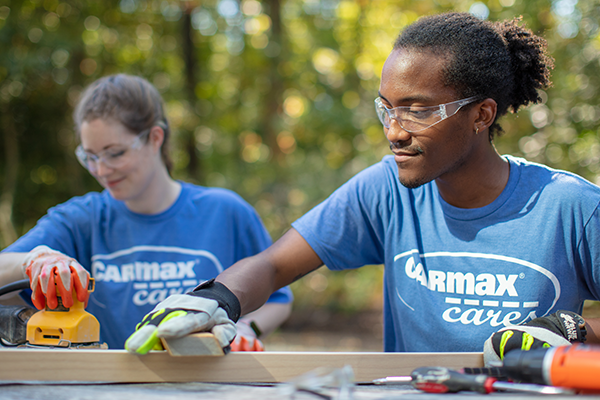
Flexible and less formal
Unlike millennial-magnet businesses peddling software or ride-share apps, Dominion Payroll has turned a profit every year since its founding in 2002, Gallagher says. (“We are accountants,” he notes.) The firm’s been on the Inc. 5000 list of the nation’s fastest-growing companies for 10 years straight, growing to 200-some employees working in offices in Richmond; Nashville, Tennessee; Tampa, Florida; Charlotte, North Carolina; and Dallas.
Dominion Payroll’s community engagement director, Kevin Wilson, 37, points to Business Roundtable’s recent call for corporations to widen their priorities from simply increasing shareholder value to include other goals such as investing in employees and the environment.
“That feels like a positive outcome for the world, to face what might be existential threats to the world,” Wilson adds. “The death rattle of Milton Friedman makes me very happy.”
If a higher purpose is millennials’ top value, flexible workplaces come a close second.

Millennial flexibility can provide real value for employers, DeNoia points out. “Millennials are just not that into the corner office. They’re happy with a water bottle, a laptop and headphones.”
Shared desks for people who like to work different hours can save costs. And having millennial employees who prefer multitasking means multiple projects can be moving at the same time.
On the other hand, a lot of younger workers lack the office experience of older generations, says John M. Garrett, a 28-year-old vice president of commercial lending at TowneBank in Norfolk.
Garrett mentors fellow Virginia Military Institute graduates, advising them to adopt the communication styles of their older bosses — more phone calls and notes, no texts on weekends or at night.
Garrett has heard the criticisms of millennials. “In the grand scheme of things, I think every generation goes through this period of stereotypes,” he says. “I hear people say we’re too obsessed with social media, that we’re selfish, not working hard.
“It’s certainly not the majority. Most of us are passionate — about the environment, about making a mark on the world, about leaving the world better than we found it.”
How you feel about that perspective probably depends on when you were born.
And what about employers who would rather not deal with these millennials and their nontraditional work preferences?
“Good luck,” says SIR’s Martin. “That is no longer a sustainable model. And that’s the bottom line.”
More on millennials in the workplace: A group of 20-somethings is transforming Pulaski. Seven requirements to hire and retain younger workers.
t


